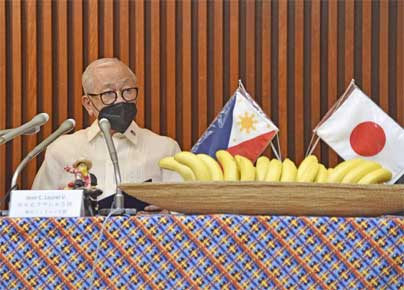Philippines Advocates for Reduction in Japan's Banana Export Tariff
2024-06-28

Bananas, the Philippines' top agricultural export to Japan, reached a total volume of 3.4 million metric tons from 2020 to 2023. On Tuesday, Agriculture Secretary Francisco Tiu Laurel Jr. expressed interest in reducing the tariff on banana exports to Japan to enhance further the global market presence of the Philippines' agricultural commodity.
Laurel voiced his concerns at a media forum organised by the Philippine Chamber of Commerce and Industry in Taguig City. He stated, "I'm very well aware of the problem. In my opinion, it's unfair that Vietnam was given zero [tariff] and Ecuador, too. And I'm really upset, actually, over the matter." During his visit to Japan a few months ago, Laurel met with the Minister of Agriculture, Forestry, and Fisheries (MAFF) to request a reduction in the levy, or at least parity with competitors. He plans to return to Japan at the end of July to continue discussions. He said, "This is not something that I can take sitting down. I'm going to remind the President that if they talk to always mention it. But I will be shuttling, if needed, to Japan to put pressure on them. Hopefully, they would allow us." These ongoing efforts to enhance market access for Philippine agricultural products demonstrate our unwavering commitment to this cause. The agreement is also expected to reduce the banana tariff to zero within five years. In early June, Laurel met with Japan's new envoy to Manila, Ambassador Endo Kazuya, during the latter's courtesy call. They discussed agricultural cooperation between the two countries, particularly details of the memorandum of collaboration between the DA and Japan's MAFF and the recently adopted ASEAN-Japan Midori Cooperation Plan.
The discussions with the Japanese envoy included:
The Philippines requests to reduce the tariff on its bananas.
Market access for fresh avocados.
The revival of mango exports.
Meanwhile, the banana export tariff to South Korea is also expected to be lowered. The Philippines and South Korea signed a free trade agreement last year, a promising development that could significantly enhance market access for critical products such as bananas, processed pineapples, various fruits, industrial goods, and diverse services.









